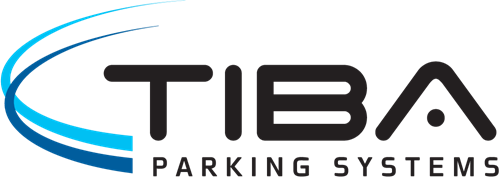NJ Transit may turn to private operators for parking

In what some fear could lead to higher parking costs for commuters, NJ
Transit is weighing a plan that could privatize parking at 81 of the
cash-strapped agencys sites including the Hamilton, Princeton
Junction and Trenton train stations.
Transit is weighing a plan that could privatize parking at 81 of the
cash-strapped agencys sites including the Hamilton, Princeton
Junction and Trenton train stations.
 The idea could help NJ Transit to plug a short-term budget hole, but observers also worry about the potential for lower future public revenues and the loss of development opportunities on NJ Transit-owned land.
The idea could help NJ Transit to plug a short-term budget hole, but observers also worry about the potential for lower future public revenues and the loss of development opportunities on NJ Transit-owned land.On Oct. 14, NJ Transit sent a Request for Qualifications (RFQ) inviting private investors to declare their interest in bidding on a long-term contract to operate NJ Transit parking lots over 30 to 50 years.
Under the SPACES (System Parking Amenity and Capacity Enhancement Strategy) initiative, firms would vie for the exclusive right to collect parking revenues at the sites throughout the decades-long agreement.
Applications from 10 companies have been received and will be reviewed in the coming weeks.
Though ridership on NJ Transit trains and buses has declined slightly during 2010, the agency still serves many commuters who in recent years are likely to have encountered crowded parking lots and years-long waiting lists for spots.
During these challenging economic times, its critical that we pursue innovative ways to improve parking for customers while addressing the growing cost of operating parking facilities and undertaking cost-saving measures, said NJ Transit executive director Jim Weinstein in a prepared statement.
The agency owns or operates 48,000 parking spots throughout the state. Three-quarters of them are operated by either a private company or local government agency.
As many as 37,165 parking spots could be privatized, based on the numbers contained in the RFQ.
A fare hike approved in April led to 25 percent increases for train and interstate bus commuters and 10 percent increases for light-rail and local bus riders.
The fare hikes were imposed to help close a $300 million budget gap for the fiscal year that began July 1.
Weinstein said in June that capitalizing on the parking facilities represents the agencys best opportunity to fill the remainder of the budget hole, and he estimated the public-private partnership could bring in at least $100 million.
The RFQ lists 81 NJ Transit-owned assets parking lots and decks at buses, train and light-rail stations that could be offered to the highest bidder as part of the privatization deal.
Included are lots at the Hamilton, Trenton and Princeton Junction train stations, three NJ Transit properties whose millions of dollars in parking revenues are eclipsed only by those of the Metropark station in Woodbridge.
The list isnt final certain assets may be added or removed during the RFQ and due diligence process, the document notes.
But privatizing parking at these particular stations is not without its complications.
NJ Transit owns a total of 5,885 parking spots at Hamilton, Trenton and Princeton Junction in West Windsor. Parking garages at Hamilton and Trenton are leased by Nexus Parking Systems.
In Trenton, the company entered into a 60-year lease with NJ Transit in 1994; at Hamilton, a 37.5-year lease was signed in 2005.
A possible bidder could share net revenues in Trenton by becoming an NJ Transit tenant and sublessor to Nexus in Trenton, a footnote in the RFQ states, while 1,479 surface lot parking spaces in Hamilton are currently managed by Nexus but not tied up in the 37.5-year parking deck lease.
Representatives at Nexus Parking Systems could not be reached for comment.
In West Windsor, the township, NJ Transit and the West Windsor Parking Authority have been in talks for years to construct another parking garage on NJ Transit-owned land on Alexander Road.
But plans for that parking garage have effectively been put on the back burner as a result of the privatization proposal, Parking Authority chairman Andy Lupo said.
From an entity point of view, they can really only focus on this one project right now, which is figuring out who their partner is going to be, said Lupo.
The RFQ does state that any bidder would have to agree to design, build, finance, operate, maintain and repair a new parking deck at Princeton Junction as part of any agreement.
Quarterly passes at the two West Windsor lots fetch $120, and commuters at the NJ Transit lot on Alexander Road must pay $195.
With a private company coming in, one would think the rates would have to increase to make this a profitable venture for them, said Lupo.
Thats what worries Assemblywoman Linda Greenstein.
Greenstein, D-Plainsboro, and fellow Assembly member Wayne DeAngelo, D-Hamilton, wrote to NJ Transit in June expressing concern after the agency approved $1.1 million in consulting fees tied to privatization efforts.
Theyre trading the potential of a very large future revenue for what appears to be a short-term budget fix, said Greenstein, who was recently elected to the state Senate.
Jay Corbalis, a policy analyst with the smart-growth organization New Jersey Future, said parking prices could likely rise as a result of a private investor takeover why else would a company agree to operate thousands of parking spaces over 30 years?
But what Corbalis said concerns him is the fate of transit-oriented developments that have been the subject of great debate in areas like Trenton and West Windsor.
In a statement, Weinstein touted the ability of the privatization plan to actually help transit development.
We also believe that SPACES will help spur Transit Oriented Development, which is a tremendous benefit to those communities throughout the state which we serve, he added.




Comments
There are no comments yet for this item
Join the discussion